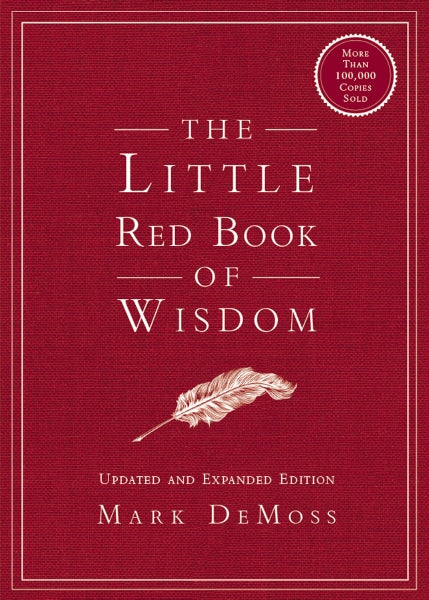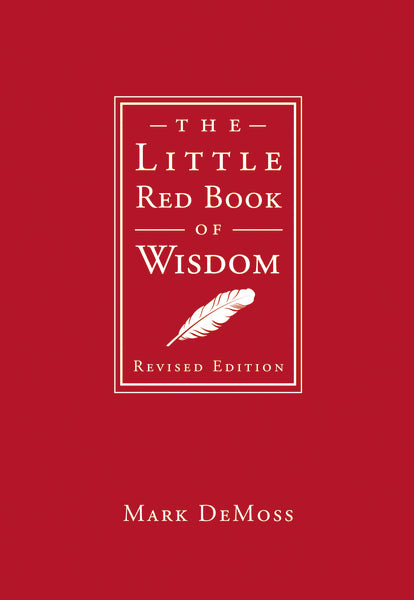Wisdom for Every Aspect of Your Life, in One Short Book
Nothing ever becomes real until it is experienced. Even a proverb is no proverb to you till your life has illustrated it. — John Keats, letter to George and Georgiana Keats
Two prostitutes approached the king's bench. The first had given birth to a baby boy, and three days later, in the same house, the second gave birth to a baby boy. During the night, the second woman rolled over and accidentally smothered her newborn. What did she do? She switched infants. The next morning the first prostitute awoke to a dead child and the other woman claiming her live child.
"She's lying!" the second prostitute shouted. "Her baby is dead! This baby belongs to me!"
A court hearing circa 900 bce predates DNA testing, and the king had a long docket. He asked to have a sword brought to him, and an aide produced a blade. Gesturing, the king said: "Cut the child in two and give each mother half." "No!" the first mother cried out, "give the baby to her!"
"Fine!" the second one yelled, "no one gets him!"
"The first woman is the mother," the king said. "Give her the baby."
The monarch whose reputation for wisdom was sealed that day was Solomon, son of David, Israel's first king, and David's wife Bathsheba. Toward the beginning of his forty-year reign, Solomon collected wise sayings and pored over them. At some point he winnowed the riches into a book in the Bible's Old Testament under the simple name Proverbs. From nearly a thousand years before Christ, Proverbs is one of the earliest examples of wisdom literature, a priceless guide still widely considered the gold standard of counsel.
Of the Bible's sixty-six books, to my thinking, Proverbs is the most provocative. Two dozen centuries before Sigmund Freud and psychological profiling, thirty-one short chapters penetrate human nature with insights into sex, anger management, slander, wealth, welfare, business ethics, intoxication, pride, and fissures in character as relevant as tomorrow's top trending topic.
Proverb is a Hebrew word meaning "to rule or to govern." Much of it has to do with self-mastery, and the only thing better than reading it is reading it routinely. If you were to take in a chapter a day, in one year you'd have twelve readings of a book that I consider boredom-proof. After nearly four hundred trips through the entire book, I still rely on it for new insights, reminders of timeless truths, and life-guiding principles.
Billy Graham said he read five psalms a day "for getting along with God," and a chapter of Proverbs a day "for getting along with my fellow man." In my growing-up years, I saw my father do the same thing. He also read every year through the Old and New Testaments, still another reminder that a mind and character cannot be left to chance.
To sample Proverbs, flip around. Just don't be deceived by the simplicity. A proverb is an acorn with a tree inside — a puzzle piece to character — and character, in the words of Pulitzer Prize–winning historian Barbara Tuchman, is destiny.
Here's my sample for you, from the NKJV translation (italics added):
Proverbs 1:33: "But whoever listens to me will dwell safely, and will be secure, without fear of evil." If we listen to it, wisdom will protect us.
Proverbs 2:11: "Discretion will preserve you; understanding will keep you." Like an invisible shield, good judgment deflects problems before they can strike and destroy.
Proverbs 4:25: "Let your eyes look straight ahead, and your eyelids look right before you." Life's highway is lined with wrong exits, fake billboards, flashing arrows, and wreckage. A farsighted driving instructor warns us to keep our eyes on the road.
Proverbs 5:21: "For the ways of man are before the eyes of the Lord, and He ponders all his paths." We can lie to ourselves. We can lie to the IRS, our spouses, coworkers, neighbors, bosses, personal trainers, and the guy who mows the lawn. God reads us straight through.
Proverbs 6:27–29: "Can a man take fire to his bosom, and his clothes not be burned? Can one walk on hot coals, and his feet not be seared? So is he who goes in to his neighbor's wife; whoever touches her shall not be innocent." Enough said.
Proverbs 8:11: "For wisdom is better than rubies, and all the things one may desire cannot be compared with her."
- Wisdom is the ace in every play. Nothing comes close.
Proverbs 10:19: "In the multitude of words sin is not lacking, but he who restrains his lips is wise." The difference between speaking words or withholding them can be the difference between sin and wisdom.
Proverbs 12:1: "Whoever loves instruction loves knowledge, but he who hates correction is stupid." Your critics have information that your friends are withholding. If you love the truth and want to grow, the people who correct you have the goods.
Proverbs 15:1: "A soft answer turns away wrath, but a harsh word stirs up anger." Most arguments begin with tone of voice. If your first reaction to a tone is anger, wait for your second reaction and soften your tone. Even if you have to fake it, soften it and feel your temperature cool.











No comments:
Post a Comment